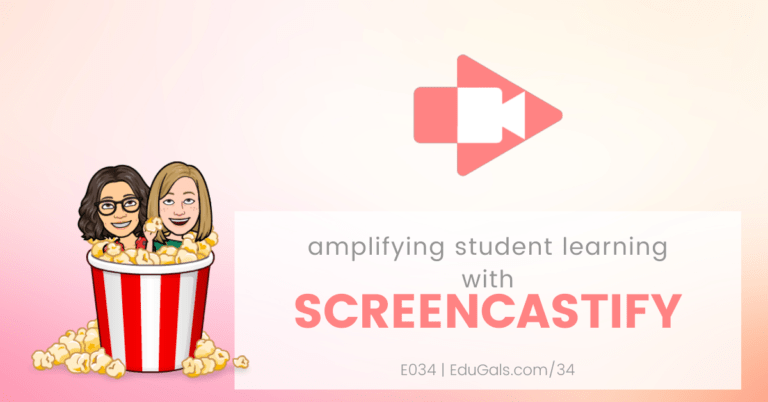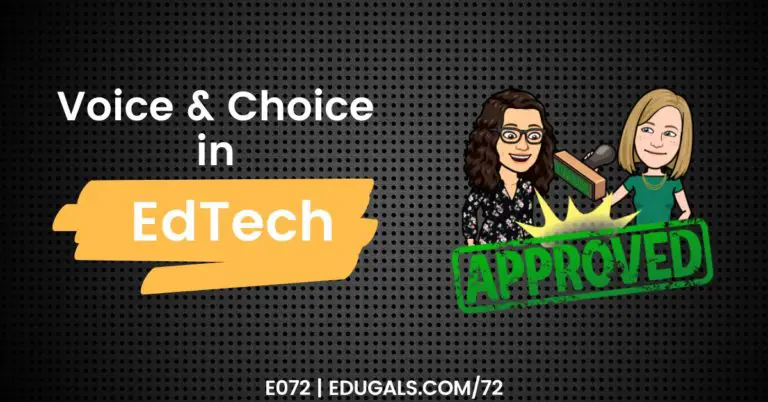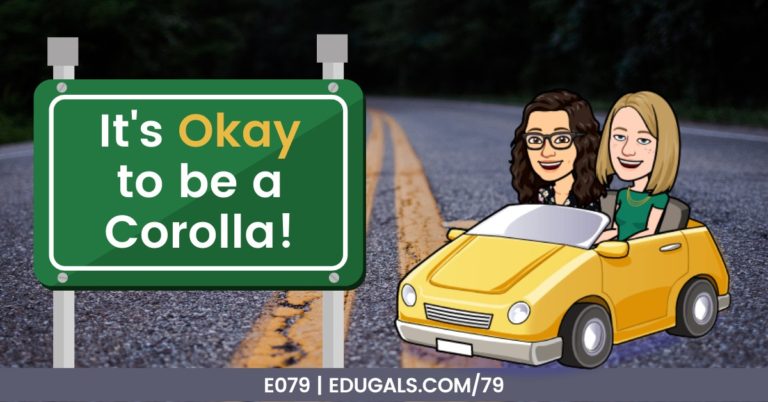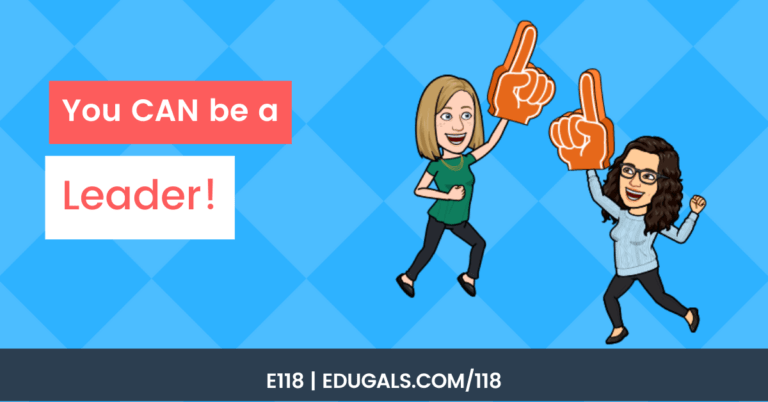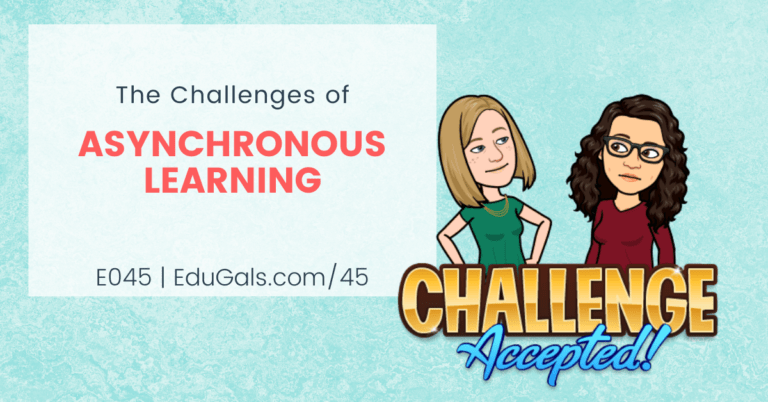[podcast_subscribe id=”7428″]
In this episode, we are celebrating 100 episodes!! We will be sharing and celebrating this journey with Doug Peterson (Twitter: @DougPete) and Stephen Hurley (Twitter: @Stephen_Hurley).
If you like what you hear, we would love it if you could share this episode with a colleague or friend. And make sure you subscribe so that you don’t miss out on any new content! And consider supporting the show by buying us a coffee or two!
We would love to hear from you – leave a comment on our website OR check out our FLIP!

Show Notes
This week, we are so excited and happy to be celebrating our 100th episode!
We thought it would be neat to hand over the reins to two amazing guests: Stephen Hurley and Doug Peterson, two amazing podcasters and educators that have communicated with us, and shared in our podcast journey.
Doug first found us and mentioned one of our posts on his show “This Week in Ontario EduBlogs” with Stephen Hurley a year or so ago. They also had Rachel and Katie on their show a couple of times to chat about education.
The EduGals are now a century old! What better way to celebrate than chatting about how we got started, where we are now, and where we are going!
What got us started in wanting to podcast? Why podcasting and blogging?
We had been talking about this for quite a while. We were both part of the tech team at our school, and wanted to reach a wider audience and help support more educators.
We talked about podcasting for ages, but it was the pandemic that really got us going. We went out, got microphones, and got started with the EduGals!
We are both pretty shy and introverted people, so it’s a bit funny that we chose podcasting. However, we do have knowledge to share, and we want to help support others, so we pushed ahead and created the EduGals podcast with our show notes.
It has been such a fun adventure! Even though it does take some time from our personal lives, this is a passion project for both of us so it doesn’t feel like a chore or a job.
When we were first chatting about how to support teachers, we had originally discussed creating a blog and going that route, but we struggled actually sitting down and writing the posts. This is when we decided to try out podcasts with the accompanying blog post. It allowed us to get started with sharing, creating consistent routines, and then getting us further into blogging. It was a nice entry route to our world of content creation.
What was the topic of the second podcast?
Our second episode was all about Screencastify, which is one of our favourite edtech tools of all time. It felt quite natural to talk about this tool so early in our podcasting because we knew it, loved it, and with remote learning it was a tool that made sense.
Do you ever go back and listen to your first or second podcast, and then take a look at where you are now to reflect on how you have matured?
We have gone back and listened to the first episodes we created, and to be honest, they make us cringe a little bit because it was so scripted.
At the beginning, we spoke ahead of time and planned out our conversation points, what we wanted to include, etc. but it just didn’t work very well. This was how we discovered that we like to set a topic, go off and do our own investigating or info gathering, but now we don’t talk until we hit record. It is then that our conversations have developed into our episodes; we build off of one another and let the conversation head in whatever direction we seem to be going.
There were a lot of nerves when we first started podcasting, and hitting that record button was scary. It was this that caused us to over-plan at first. We went from over-planning to sometimes under-planning, but it works well.
How did the equipment in your studios mature over time?
In terms of equipment, we both did not start off with what we are using now.
Katie had a USB mic and a big rubbermaid container that was lined with pillows and blankets, and I would live in this container when we recorded every week.
It has definitely changed since then! We are both now using Rode PodMics.
How do you assess impact? How do you step back and look to determine what impact you have made? What are the measurements of that impact?
When listeners email, comment and interact with us, it is amazing! We love the regular interactions, and it keeps us motivated to continue.
That being said, podcasting is a way for us to work through some of the challenges that we face in education, too. It helps us to problem solve through different ways that we can improve, make our teaching better, and move forward.
Sometimes impact is more than just the number of listeners, or how many are commenting, it’s about how we are changing our own practice to become better educators, and to further our own learning. It has become personal and professional growth for ourselves.
Reflecting on our practice and what is going on in our professional lives; working through some of these problems and taking what we chat about and bringing it back to our classrooms. We can see how we have developed as educators, and how it benefits our students – and this is where we believe our biggest impact can be seen.
Recently, Rachel was asked to speak at a Mote conference, and at the conference Mote shared that they created a new feature because of the inspiration of our work and progress that we have made in ungrading on our podcast. This was amazing feedback, and it’s also a way that we see the impact of our podcast.
Have you ever presented together, or individually, at a conference or District Professional Development event?
Each of us has presented individually, and we have also presented together.
In the summer, an instructor from Queen’s reached out and asked Katie to talk to a couple classes of preservice teachers based on some of our podcasts that they listened to with a focus on supporting English Language Learners.
Even prior to podcasting, Katie was presenting at various PD events. She’s a strong believer in collaborating with others; any knowledge that she has, she wants to share with others in case they can benefit from it, or use that learning or material with their own students. It’s a bit part of her philosophy as an educator.
We have also presented at conferences together. We did a couple of virtual edtech conferences in the summer of 2021; we presented for the Vancouver School Board in February of 2022; we have written articles for Education Canada Magazine, as well as a webinar based on one of those articles. We are also presenting virtually at the ISTE Creative Constructor Lab this fall (October 2022), which we are super excited about!
Rachel has done lots of presenting on her own as well. She has done lots of other conferences, including ISTE last summer, and MoteCon this past summer.
Does knowing the audience affect the type of content you tackle and how you tackle it?
This one is a little bit of yes, and a little bit of no! We try to gear our podcast towards our own teaching reality, which means that we target it for educators in Ontario because that’s what we know. In terms of the tools that we use, we do try to keep that a little more broad.
We started mostly with just tools that we use, but we are trying to open that up more, recognizing that not all Boards and Districts allow for the same tools. We try to share more options, and the reminder that it isn’t about the specific tool that you use, but rather the purpose or what you are trying to accomplish that matters the most; finding a tool that fits your purpose is what is the most important.
So in some ways we have changed a bit over the course of 100 episodes, but in other ways we’ve been fairly consistent in how we choose our topics, their relevance to what is going on in our professional lives and how we move forward.
How do you feel about knowing that there are a lot of teachers in your own Board or District that may not know about you, yet you are internationally renowned and sought after?
This question makes us giggle a little bit. When we first started we made the conscious decision not to mention or refer to our own school Board or where we teach. We don’t want to create that connection between where we work and us/our podcast. We don’t want to be seen as representatives of our Board because a lot of what we may talk about may not align with the vision of the Board. We want to have the creative freedom to talk about whatever it is we want to talk about. This was quite intentional.
There are people in our Board that will be a bit surprised upon learning that we are the EduGals, which is a bit funny.
Four introverts walk into a Zencastr room. . . and then they have this conversation! Very often we have students that are very hesitant to come forward and talk – where do you see podcasting fitting for them?
As Doug says, not all students are created equal, and some will want to come in and take over, and others will come out of their shell, etc.
It comes down to lots of scaffolding, and building up the skills to building out a full podcast. It may start out at the beginning of the year with a simple web-based audio recording tool. Maybe it’s just getting them to record how to pronounce their name and an interesting fact about themselves.
It can start with these micropodcasts and building from there towards smaller podcasts or micropodcasts that are on content-related topics, and continuing from there.
Last year, Katie started building micropodcasts with her English Language Learners last year because speaking is one of the areas of langauge where students tend to be the most hesitant and afraid to make mistakes.
It really comes down to introducing the tools a little bit at a time, and building the audience slowly – don’t share it with the whole class right away. It can start with an entirely different purpose, but using the recording tool you’ll want for podcasting. This could be recording themselves reading (to which the teacher would then provide feedback), doing presentations, etc.
From there, build their confidence and move them towards more of a podcasting format. Provide templates (Slides or word document) that break down the different parts: start with an introduction (their name, etc.), the topic they are going to talk about and why people might want to listen. Give students the option to type/write out sentences or dot jots, depending on their preference, or even allow students to hit record with simply the visual prompts as reminders to what they were to record.
Whatever you do, make sure you give options, especially for those that lack confidence and need that visual template to remind them of what they need to talk about. Recording themselves is a great way for students to become more comfortable speaking, and also more comfortable sharing it with others.
What do the students’ parents think when they hear their students podcasting and sharing their original thoughts?
Many of Katie’s students have parents who don’t speak English, or custodians who aren’t overly involved in their education. Those who do listen to their student’s podcast think it’s neat to hear their child putting themselves out there and recording their material. They like to hear/see the development in their kids.
The cool factor! How do you stay fresh in your approach in an ecosystem that seems very crowded?
We don’t intentionally stay fresh or change what we do in order to stay fresh. A lot of our topics for our podcast, or where we are going with our content, are centred on the challenges that we have in education as educators ourselves.
We started off with a lot of podcasts on edtech tools because that was where our strengths were, and that was what we needed, but now we’ve gone to other topics, like mastery-based learning, because that’s something that we are both really passionate about over the last year or so. Other topics of interest that have caught our attention, and that we feel are beneficial, are the Universal Design for Learning (UDL) and ungrading strategies.
A lot of what we discuss in our podcast really does come from our own experiences as educators, and gives us a way to problem solve and talk out the different challenges that we are facing in our classrooms.
What are some of the topics or places that you see yourselves growing into?
There will be a lot more around ungrading. Also, because we are both implementing mastery-based classrooms this fall, there will be a lot of failures being shared, next steps and how we can fix it and get better, and problem-solving through some of these challenges.
There’s also a lot going on in education right now: good, bad, and ugly – this will come through as well over this next year.
Not only do you have the podcast, but you often have a supporting blog post along with it. You’re hitting us with two forms of media that really makes it incredibly rich and unique. How does that come together, and does that slow down the publishing process?
Katie writes the blog posts every week. It started because she was never a person that could learn by listening along; she needs something to go back to; to look at, to read through, etc. in order to remind herself of the concept she is trying to learn. So, when we started, we discussed that it would be great if we could have something that people could go back to in order to reference it, check out links, etc. It becomes this extra resource that is available in case you don’t have the time to sit and listen.
Does it slow down publishing? Yes. It takes hours to put the show notes together. We publish every Tuesday, so the show notes tend to be Katie’s Monday evening/night activity!
While it may take time, we do love it! We talk things out really well when we are recording, so going back and listening in order to type out our notes works really well. The work flow is effective, and the division of labour works well. While Katie does the show notes, Rachel does the editing of video and getting the episodes uploaded and ready to go every week.
We each spend at least a few hours every week, but it’s a passion project and we really enjoy doing it. It doesn’t feel like work.
When other people or educators reach out with questions about getting started with podcasting, where do you start? Do you start with the technology? with the ideas? somewhere in between? How do you approach it, sharing your knowledge about podcasting?
Most of the time, when people approach us with this type of question, it’s more geared towards how they can start podcasting in their own classrooms. A few of the sessions that we have run together as the EduGals are centred around micropodcasts in the classroom, and getting started with that.
Our biggest advice is usually the following:
- You don’t need fancy equipment! You just need something that allows you to record your audio
- Topics/Ideas! You need some topics or ideas to get your started, but it doesn’t have to be scripted!
You really just have to hit record and learn as you go!
So you’ve hite 100; what do you have lined up for the next 100?
If we only had 100, at the very end would be an episode on Google Sheets. Rachel and Katie keep talking about doing an episode on Sheets, but they keep pushing it off and never hit record. Sheets drives us, particularly Katie, a little bit crazy.
In all honesty, that’s an excellent question, and we have been thinking about our upcoming content and where we are going. We tend to take it as it goes, and will continue to do so, but we do have topics laid out for the next 10-12 episodes: ungrading, mastery, UDL – these are a few different topics where we are headed, with multi-episode parts for some of these topics.
If you have a request for an episode, please don’t hesitate to reach out and let us know! We are always open to requests.
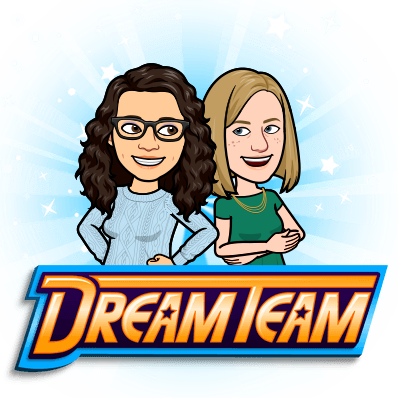
We just want to send a huge thanks to Doug and Stephen for sharing our material over the last 100 episodes, and for agreeing to join us in celebrating and reflecting on our podcasting journey so far. This was such a fun episode to record, and we really appreciate it.
It has been such an amazing adventure, and we look forward to creating and sharing more content.
